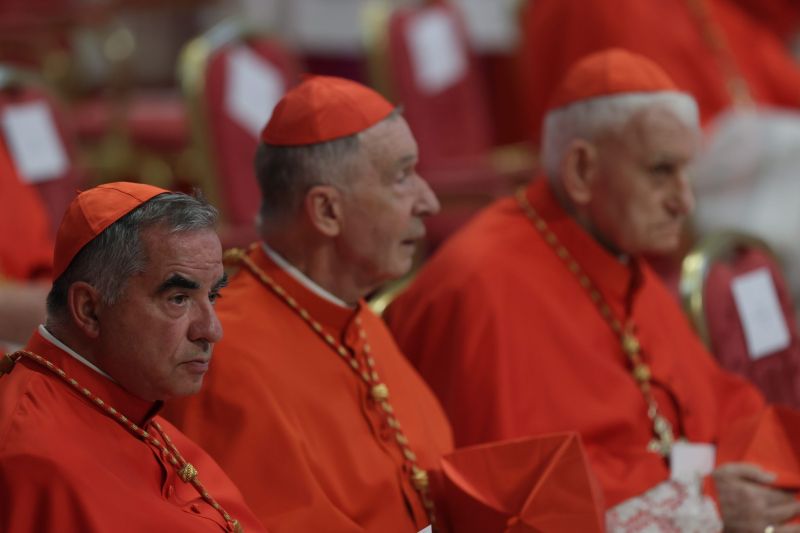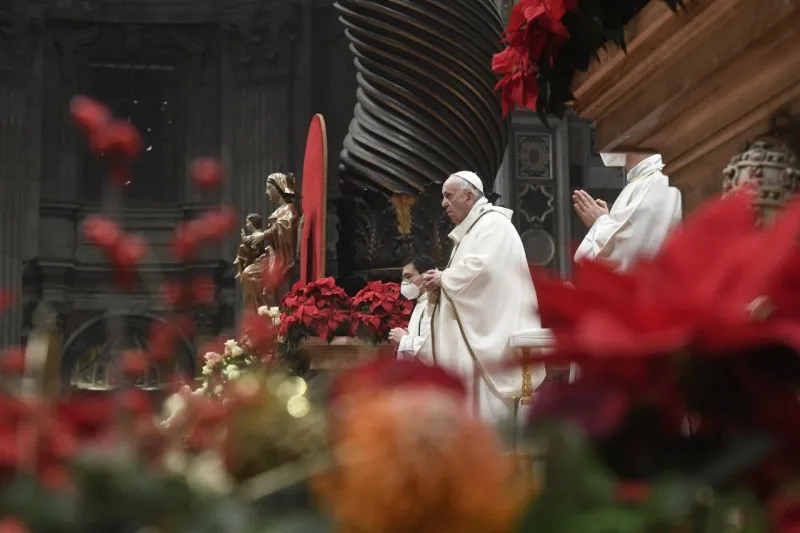
Vatican City, Jul 26, 2023 / 09:33 am (CNA).
The top public prosecutor for the Vatican on Wednesday asked the judge in Cardinal Angelo Becciu’s financial malfeasance trial to serve the embattled prelate with seven years and three months in prison and to confiscate more than $15 million in connection with his alleged mismanagement of Holy See funds.
Becciu has been charged with embezzlement, abuse of office, and several other allegations regarding a series of financial investments that prosecutors claim were meant to benefit his family at the expense of the Vatican.
The trial is the culmination of more than two years of investigation by the Vatican into what happened in and around the Secretariat of State’s 350-million-euro purchase of an investment property in London between 2014 and 2018.
The Vatican maintains that the deal was problematic and designed to defraud the Secretariat of State of millions of euros.
The defendants in the trial have been adamant their actions were above board and that Vatican authorities were in the know.
Becciu has claimed the purchase of the London property was an “accepted practice.” He has also been accused of funneling tens of thousands of dollars to a charity run by his brother.
Vatican prosecutor Alessandro Diddi on Wednesday asked Judge Giuseppe Pignatone to serve Becciu with seven years and three months in prison, to fine him more than $11,000, and to confiscate upwards of $15 million.
The stiff sentencing, Diddi argued, was necessary to recompense for the “many crimes against the patrimony of the Holy See,” the Associated Press reported.
Becciu’s lawyers in the wake of Diddi’s request argued that the cardinal has always been a “loyal servant of the Church,” the AP reported.
“Not even one day would be a fair sentence,” the lawyers said.
Diddi also requested prison sentences for other defendants in the trial, including 13 years for Fabrizio Tirabassi, a former official in the administrative section of the Secretariat of State.
In addition to recommending prison sentences, the prosecutor requested the confiscation of a total of $462 million from the case’s 10 defendants.
Earlier this year during trial proceedings it was revealed that Pope Francis had rebuffed Becciu’s attempts to have the Holy Father offer his approval of the disputed transactions, with Francis telling the cardinal bluntly: “I cannot comply with your request.”
The proposal to purchase the London property “immediately seemed strange to me,” Francis told Becciu in the letters.
While Pope Francis intervened in 2020 to force Becciu’s resignation as prefect of the Congregation for the Causes of Saints and barred him from the rights and privileges of cardinals, he has since unofficially reinstated the disgraced prelate, allowing him to participate in public Vatican Masses and other events.
In a 2021 interview with Spanish broadcaster COPE, Francis said he hoped “with all my heart” that the cardinal is proven to be innocent.
This week marks two years of hearings in the Vatican’s largest trial for financial crimes in the modern era, with 10 defendants and a laundry list of charges, including embezzlement, money laundering, abuse of office, misappropriation, and fraud.
Hearings will resume in September and a decision is expected before Christmas.
If you value the news and views Catholic World Report provides, please consider donating to support our efforts. Your contribution will help us continue to make CWR available to all readers worldwide for free, without a subscription. Thank you for your generosity!
Click here for more information on donating to CWR. Click here to sign up for our newsletter.






Leave a Reply